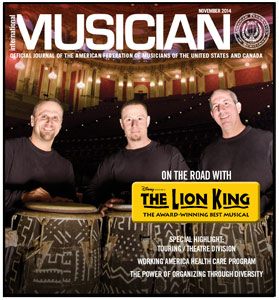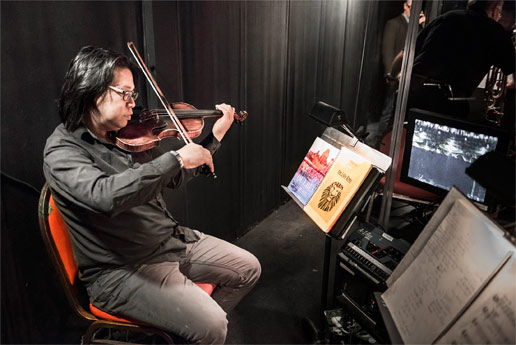The Kentucky GOP promised to put the Bluegrass State in the “right to work” column, if they flipped the Democratic-majority state House of Representatives. A slew of GOP radio, TV, and print ads touted the right to work law with claims that the measure would lead to thousands of good jobs in Kentucky.
Paducah Plumbers and Steamfitters (UA) Local 184 challenged the Republicans on their own turf, the anti-union newspaper Paducah Sun, by taking out a full-page ad in the paper debunking Republican claims about right to work.
In the end, the GOP came up short. Democrats in Kentucky held onto their seats and Kentucky will remain the only non-right to work state in the South. State Representative Gerald Watkins of Paducah was one of the victorious labor-endorsed Democrats. “The ad was great and strong union support really helped me,” says Watkins, who was among those targeted by the GOP for defeat.
A relieved Jeff Wiggins, president of the Paducah-based Western Kentucky AFL-CIO Area Council and United Steelworkers (USW) Local 9447, says he feared a Republican majority legislature wouldn’t have stopped with a right to work law. “They would have repealed our prevailing wage law, too,” he says. “We’d have ended up working for less money, and our workplaces would have become less safe. The Republicans would have turned back the clock to the time of no unions and the company store.”



 At any given week each year, there are an average of 150 full-time AFM musicians touring throughout the US and Canada, in 20-plus musicals and three circuses. In addition to these traveling artists, touring shows provide part-time employment to hundreds of local musicians. Most productions travel with only a small core group of musicians, and they fill out the rest of the score with a “new” orchestra of local homegrown talent in each venue. Along with peer unions Actors’ Equity and The International Alliance of Theatrical Stage Employees (IATSE), the AFM has theatrical touring agreements that address short-engagement tours, which play primarily in smaller markets, as well as big budget blockbusters booked in major cities for weeks on end. Main employers—members of The Broadway League and Disney Theatricals—are signed to the AFM’s Pamphlet B Agreement, which also incorporates the Short Engagement Tour (SET) Agreement. Smaller nonsignatory producers sign single-project touring agreements, which largely mirror the AFM’s SET terms. Touring under the Pamphlet B agreement, Disney’s The Lion King is reigning king of the road musical jungle, having traveled continuously since 2002 and given more than 5,000 performances. For the most part, the 13 musicians traveling with The Lion King consider themselves fortunate to have full-time, well-paid, secure jobs in music that allow them to see the country. However, the life of a traveling musician is also wrought with unique challenges. In this article you will meet seven AFM musicians who travel with The Lion King, and learn about their lives on the road. Unlike their counterparts on the orchestral podium, conductors are covered employees in the unionized workplaces of musical theatre and circus productions. They often rise to the post through their work as pit keyboard players—and some are required to play and conduct at the same time. Their role of preparing the music for the show takes on increased importance considering the need to rehearse a different set of musicians to play complicated scores, in a limited time, every time the show changes venue. The Lion King score calls for six local musicians, in addition to the 13 who travel with the show.
At any given week each year, there are an average of 150 full-time AFM musicians touring throughout the US and Canada, in 20-plus musicals and three circuses. In addition to these traveling artists, touring shows provide part-time employment to hundreds of local musicians. Most productions travel with only a small core group of musicians, and they fill out the rest of the score with a “new” orchestra of local homegrown talent in each venue. Along with peer unions Actors’ Equity and The International Alliance of Theatrical Stage Employees (IATSE), the AFM has theatrical touring agreements that address short-engagement tours, which play primarily in smaller markets, as well as big budget blockbusters booked in major cities for weeks on end. Main employers—members of The Broadway League and Disney Theatricals—are signed to the AFM’s Pamphlet B Agreement, which also incorporates the Short Engagement Tour (SET) Agreement. Smaller nonsignatory producers sign single-project touring agreements, which largely mirror the AFM’s SET terms. Touring under the Pamphlet B agreement, Disney’s The Lion King is reigning king of the road musical jungle, having traveled continuously since 2002 and given more than 5,000 performances. For the most part, the 13 musicians traveling with The Lion King consider themselves fortunate to have full-time, well-paid, secure jobs in music that allow them to see the country. However, the life of a traveling musician is also wrought with unique challenges. In this article you will meet seven AFM musicians who travel with The Lion King, and learn about their lives on the road. Unlike their counterparts on the orchestral podium, conductors are covered employees in the unionized workplaces of musical theatre and circus productions. They often rise to the post through their work as pit keyboard players—and some are required to play and conduct at the same time. Their role of preparing the music for the show takes on increased importance considering the need to rehearse a different set of musicians to play complicated scores, in a limited time, every time the show changes venue. The Lion King score calls for six local musicians, in addition to the 13 who travel with the show.


